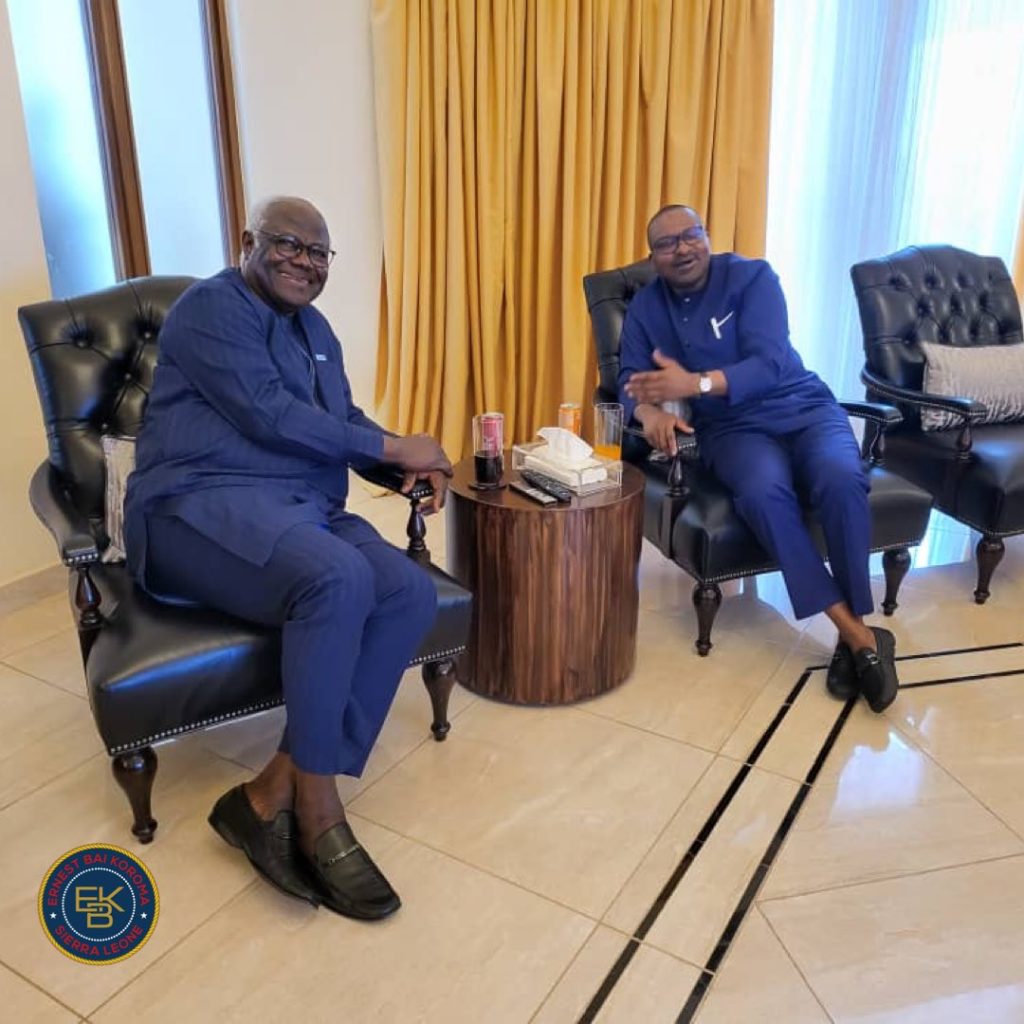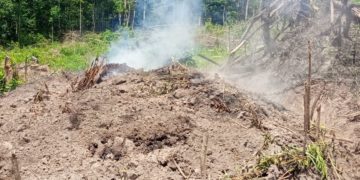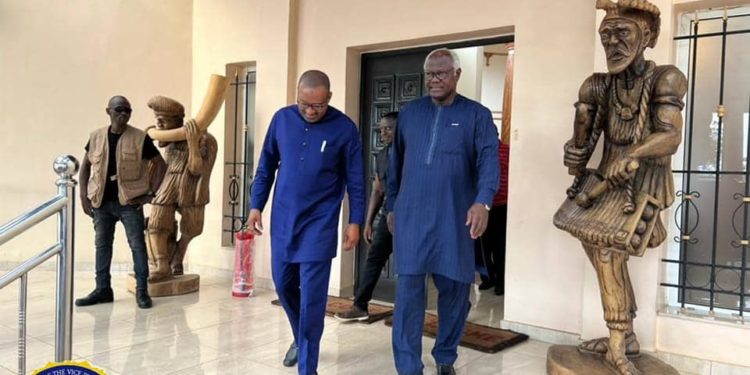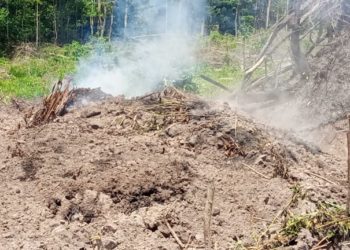Former President Ernest Bai Koroma has offered to help mobilize support for Sierra Leone’s bid for a seat in the United Nations Security Council (UNSC).
The Bio administration is seeking for Sierra Leone to occupy one of the seats usually available to the African continent in the most important organ of the global body for the period 2024-2025.
Elections for the seats are slated for this June at the next UN General Assembly in New York.
Koroma offered his support for the country he ruled for over 10 years on Saturday, after a meeting with Vice President Dr Mohamed Juldeh Jalloh.
“Anything regarding Sierra Leone’s development is a matter of priority, as long as it brings pride and honor to our beloved Sierra Leone,” the former president said via a tweet from his official account, @EBKlegacy.
“I will endorse and leverage international goodwill in pursuit of anything Sierra Leone aspires for at the UN, the AU and ECOWAS,” he added.
The meeting between Koroma and Vice President Jalloh took place at the former President’s residence in Makeni in the northern district of Bombali, where he has been living since he retired in 2018.
First elected in 2007, Koroma was re-elected for a second and final five-year term in 2012. His All People’s Congress (APC) party lost to the Sierra Leone people’s Party (SLPP) in the 2018 polls.
The power transition was conduct in a rather ominous atmosphere, thanks largely to the new government’s anti-graft posture, which angered supporters of the outgoing government.
Koroma was himself subjected to investigation over alleged involvement in corruption, which further worsened the tense political atmosphere that has characterized the entire first term of his successor – Julius Maada Bio.

This visit by Bio’s No. 2 is therefore seen by some Sierra Leoneans as a welcoming move, especially coming on the eve of an election year.
Bio will be seeking re-election for his second and final term in elections slated for next year.
Vice President Jalloh, according to his office, was returning from a visit in his native Kono District when he stopped over in Makeni.
“We had productive exchanges on national and regional peace and security issues…,” the VP said in a statement published on his official facebook page.
He noted that he used the occasion to highlight some of the gains of President Bio’s human capital development vision and the progress their government is making in the energy sector, particularly ongoing work to expand the 540 kilometres regional power lines – TRANSCO – along the northern corridor, which is geared towards ensuring sustainable electricity supply across the country.
According to VP Jalloh, their discussion also touched on efforts to strengthen and expand national cohesion dialogue spaces as the country approaches the elections.
“President Koroma applauded the government’s efforts to secure a security council seat in the non-permanent category,” Jalloh said in his statement which quoted the former president saying that ‘it will create a platform for Sierra Leone to showcase its post-conflict democracy building experience and other benefits of having a seat in the council.’
In his tweet about his meeting with the Vice President, Koroma confirmed that he was briefed on “a range of national issues,” including the country’s bid for the UNSC seat.
“I reiterated to him that my doors are always open and assured of my unflinching support to the bid and anything of national interest,” he said.
The Security Council is one of six organs that make up the UN. It comprises 15 member countries, only five of whom are permanent members: China, France, Russia, United Kingdom and United States. Collectively known as P5, any of these five powers can veto a resolution.
The remaining 10 members are elected to serve a rotating two-year, non-consecutive terms, without the veto power.
Africa usually has two to three seats in the 10 non-permanent member slot, which are currently occupied by Kenya, Ghana and Gabon.
Sierra Leone has occupied the seat only once (1970 to 1971) since it joined the global body in 1961.
Sierra Leone is selling its candidature using its experience as a war-ravaged country which turned its fate around to be an exporter of peace.
Bio is leveraging his position as chairperson of the Committee of Ten (C-10) of the African Union, a position he inherited from Koroma, to garner support for the country’s bid.
Sierra Leone has been heading the C-10, which is charged with championing the continent’s position on the reform of the UNSC, over the last 10 years.




















